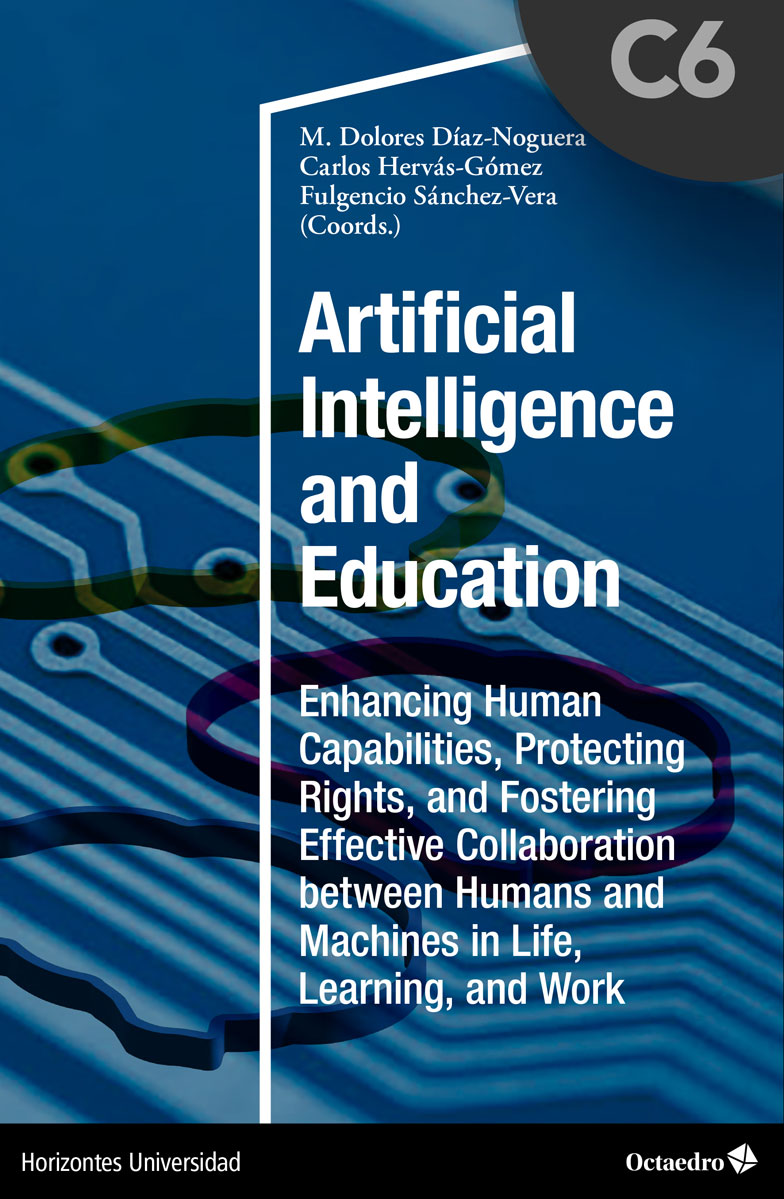FICHA TÉCNICA
Fecha de publicación:
06/11/2024
Doi del capítulo:
Título del libro: Artificial Intelligence and Education
URL del libro:
ISBN del libro: 9788410282452
DOI del libro:
Abstract
The advancement of artificial intelligence (AI) is an undeniable issue and is increasingly present in education, including inclusive education. Many AI-based tools can enhance and support the cognitive potential of students with diversity, supporting quality education, which favors their full inclusion in society. Inclusive education contributes to reducing inequalities by promoting tolerance among all people. This study’s main objective was to conduct a search, selection and subsequent review of existing AI-based tools that could be beneficial for improving the teaching-learning process and the quality of life of people with diversity. Following the results obtained, it is recommended that this line of research be continued with more in-depth studies to analyze the viability of each tool.
Palabras clave
Autores
PhD Carlos Hervás-Gómez
Universidad de Sevilla, Spain
hervas@us.es
https://orcid.org/0000-0002-0904-9041
PhD Ángela Martín-Gutiérrez
Universidad Internacional de La Rioja and Universidad de Sevilla, Spain
angela.martin@unir.net
https://orcid.org/0000-0001-9847-245X
María de los Ángeles Domínguez-González
Universidad de Sevilla, Spain
mariandg@us.es
https://orcid.org/0000-0002-9687-9325
Carmen Manzanares-Castillo
Universidad de Sevilla, Spain
carmenmanzanarescastillo@gmail.com
https://orcid.org/0009-0001-9876-2067
PhD Hăisan Angel-Alex
“1 Decembrie 1918” University of Alba Iulia, Romania
angel.haisan@uab.ro
https://orcid.org/0000-0002-0565-405X
PhD Nadia Barkoczi
Universitatea Tehnică din Cluj-Napoca, Romania
nadia.barkoczi@dspp.utcluj.ro
https://orcid.org/0000-0002-0514-2417
Cómo citar
Hervás-Gómez, C., Martín-Gutiérrez, Á., Domínguez-González, M. Á., Manzanares-Castillo, C., Angel-Alex, H., Barkoczi, N. (2024). Artificial Intelligence Tools to Improve Accessibility in Education for People with Disabilities. In Díaz-Noguera, M. D., Hervás-Gómez, C., Sánchez-Vera, F. (Coords.), Artificial Intelligence and Education (pp. 93-110). Octaedro. https://doi.org/10.36006/09643-1-06
Referencias bibliográficas
«Biggs, E. E. (2023). Strengthening professional networks to serve students with autism who have communication needs. Intervention in School and Clinic, 58(3), 173-182. https://doi.org/10.1177/10534512221081250
Borja-Acevedo, M., & Camargo-Mendoza, J. (2024). Music software with a machine learning-based feedback system as an alternative for initial piano study in children. Inteligencia Artificial, 27(73), 92-110. https://doi.org/10.4114/intartif.vol27iss73pp92-110
Farhat, F., Silva, E., Hassani, H., Madsen, D., Sohail, S., Himeur, Y., Alam, M., & Zafar, A. (2024). The scholarly footprint of ChatGPT: a bibliometric analysis of the early outbreak phase. Frontiers in Artificial Intelligence, 6. https://doi.org/10.3389/frai.2023.1270749
Markou, G., Bakas, N., Chatzichristofis, S., & Papadrakakis, M. (2024). A general framework of high-performance machine learning algorithms: application in structural mechanics. Comput. Mech. https://doi.org/10.1007/s00466-023-02386-9
UNESCO (2022). Recommendation on the ethics of Artificial Intelligence. United Nations Organization for Education, Science and Culture. https://unesdoc.unesco.org/ark:/48223/pf0000381137_spa/PDF/381137spa.pdf.multi
Wang, N., Wang, X., & Su, Y. (2024). Critical analysis of the technological affordances, challenges and future directions of generative AI in education: A systematic review. Asia Pacific Journal of Education. http://doi.org/10.1080/02188791.2024.2305156
Xie, T., Wang, X., Cifuentes-Faura, J., & Yongkang, X. (2023). Integrating immersive experience into hybrid education: a case study in fintech experimental education. Scientific Reports, 13, 22762. https://doi.org/10.1038/s41598-023-50259-1»
